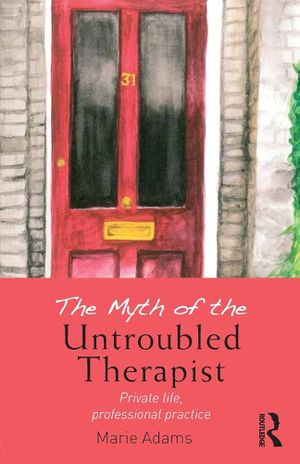
Therapist Burnout: The Hidden Cost of Always Holding Others
As therapists, we're trained to support others in our therapy practice. But what happens when we need support? Where do we go when we need to be held?
As therapists, we're trained to support others in our therapy practice.
But what happens when we need support? Where do we go when we need to be held? These questions became personal for me during a recent evening with fellow therapists. It had been a long time since I'd shared space with colleagues in that way—candidly, without the professional filters. As we opened up, it felt like we'd all been carrying something heavy without realizing it. Once the door opened, everything poured out. There was no hesitation, just a collective exhale.
That night stayed with me. It reminded me that even when spaces for vulnerability exist, we don't always step into them. Not because we don't need them, but because we've grown so used to holding that we forget how to be held. This is often the first sign of therapist burnout.
The Mask of Helpfulness and Therapist Burnout
In our profession, our role is often associated with strength, insight, and steadiness. Over time, that role can become a mask, one we wear even outside the therapy room.
We begin to equate our value with how much we can offer. Expressing needs can feel like a departure from that role, even a betrayal of it. We might worry that if we're not always composed or insightful, we'll somehow lose credibility in our therapy practice. The irony, of course, is that many of us encourage clients to let go of these very ideas, while quietly upholding them ourselves.
Unlearning that conditioning takes work. It requires us to acknowledge that being strong doesn't mean being self-sufficient at all times. It means recognizing when we, too, need care and allowing ourselves to receive it. Effective therapist self-care begins with recognition.
Challenges in Therapy Practice: The Fear of Not Being Needed
For many therapists, being needed is deeply affirming. It’s not just a function of the job, but it becomes a way of relating to the world. We’re the friend who listens deeply, the family member who diffuses tension, the one others lean on during hard times.
But what happens when that need quiets down? Moments of rest, even joy, can be haunted by a strange emptiness. Vacations feel off. Social events leave us drained rather than nourished. We may struggle to feel grounded when we're not in the role of the helper.
This fear of not being needed often points to something deeper: a fear that without our usefulness, we may be overlooked. It challenges us to ask a hard question: Who am I outside of this role? The answer isn’t always immediate, but the asking matters. It’s an invitation to rebuild identity on something more stable than constant output, which is essential for maintaining a sustainable therapy practice.
Resistance to Receiving: Why Therapist Self-Care Matters?
It's not that we don't want care, we crave it. But when it's offered, something in us hesitates. We wave it off. We redirect. We minimize. And of course, this resistance is an important topic in therapist self-care discussions.
Why do we resist? Somewhere along the line, we learned that it’s safer to be the giver. It keeps us in control. It keeps us useful. But healing, real, reciprocal healing, requires both giving and receiving. When we deny ourselves the latter, we stay stuck in cycles of emotional depletion and therapist burnout. And worse, we model that dynamic to those around us. Letting someone support us, not out of need but out of care, is a radical act. It's also a necessary one for maintaining longevity in our therapy practice.
Stillness Is Uncomfortable
Stillness is often where the discomfort starts to creep in. When we stop doing, when there’s no one to help, no immediate crisis to respond to, we’re left with ourselves. And for many of us, that’s the hardest place to be.
We fill the quiet with distractions: scrolling, planning, fixing, helping. Stillness often brings discomfort, grief, fatigue, and confusion, but it’s also where clarity lives. Learning to sit with what emerges in the quiet is uncomfortable, yes—but it's also profoundly healing for those experiencing therapist burnout and other mental health professionals. We can't keep running on empty. The moments we resist most might be the ones we need most.
Embracing the Need to Be Held: Building a Therapist Support Network
If there’s one thing I’ve learned, it’s this: allowing ourselves to be held. It means honoring our limits. It means believing that we’re worthy of care, not because we’ve earned it, but because we’re human. And we deserve spaces where we don’t have to serve, solve, or hold it all together.
The question I keep returning to is this: If someone reached for you, not as a client, not as a therapist, but simply as a person, would you let them in?
Would you allow yourself to be held? Because in the end, transformation doesn’t happen in performance .. it happens in presence. When care reaches for you, will you let it in? We deserve to be witnessed in the same way we witness others.
Finding Support Through Therapist Professional Development
We, therapists, can find healing and connection through structured professional development opportunities. Our therapist workshops, life coaching workshops, and specialized training programs provide spaces for vulnerability, learning, and genuine connection. Building a strong therapist support network is essential for combating therapist burnout and maintaining our well-being. Having colleagues who understand the unique challenges of our therapy practice can make all the difference.
Journey's therapy workshops address clinical techniques and also business and personal growth aspects that are often overlooked in traditional training.








